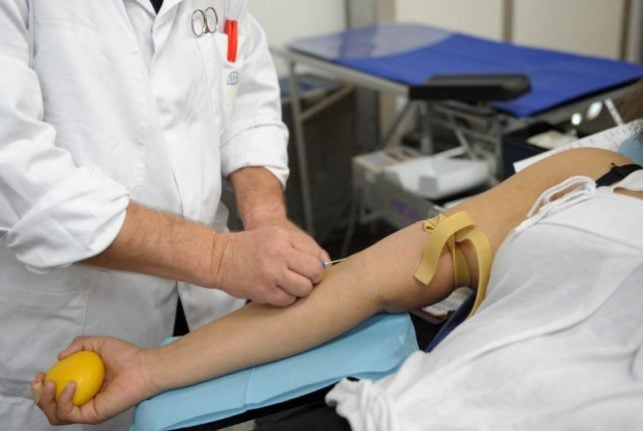References to sexual orientation will be removed from blood donation questionnaires, putting what Health Minister Olivier Véran said on Twitter was, “an end to an inequality that was no longer justified”.
Dès le 16 mars, tous les français, quelles que soient leurs orientations sexuelles, pourront donner leur sang !
Nous mettons fin à une inégalité qui n’était plus justifiée. #DonDeSang🩸 pic.twitter.com/wjnd1ylqt1— Olivier Véran (@olivierveran) January 11, 2022
From March 16th, in line with bioethics laws and the “political will” of the Minister of Health, a decree signed on Tuesday will make blood donation accessible to all on the basis of the same criteria.
A ban on gay men giving blood in France, that had been in place since 1983 over fears of the spread of AIDS, was officially lifted in July 2016. But potential donors were still required to adhere to a period of sexual abstinence before being allowed to donate.
That period – which, from March, will be removed – was originally set at one year before being cut to four months in 2019.
The decision was welcomed by the L’Interassociative lesbienne, gaie, bi et trans (Inter LGBT). “Imposing a four-month period of abstinence on homosexuals wishing to donate blood is totally absurd and has always been seen as a form of discrimination, especially when we know that donations are in short supply,” spokesman Matthieu Gatipon-Bachette told Le Parisien.
“There must obviously be a health safety framework to respect, but it must not be based on the sexual orientation of the donor,” he added.
France’s Director générale de la Santé, Jérôme Salomon, agrees. “The extreme vigilance of the health authorities allows for a change in the conditions of access to blood donation,” he said.
The risk of transmission of HIV, the virus that causes AIDS, by transfusion “has been falling steadily for decades”, he said.
Potential donors will have to declare if they are undergoing treatments related to HIV prevention, and will also still be asked questions relating to recent sexual activity or drug use, but questionnaires and pre-donating interviews will no longer include questions on sexual orientation.
“These are questions donors are already used to,” Professor Salomon said.
Most people living in France are able to give blood, but anyone who lived in Britain for more than a year during the bovine spongiform encephalopathy (BSE) crisis between 1980 and 1996 is still banned. The illness, which affects cows, can spread to humans in the form of Creutzfeldt-Jakob Disease.
READ ALSO Can Brits give blood in France?



 Please whitelist us to continue reading.
Please whitelist us to continue reading.
Member comments